- Home
- Harlan Coben
the Innocent (2005)
the Innocent (2005) Read online
the Innocent (2005)
Coben, Harlan
Published: 2010
The Innocent Harlan Coben *
PROLOGUE:
YOU NEVER MEANT to kill him.
Your name is Matt Hunter. You are twenty years old. You grew up in an u pper-middle-class suburb in northern New Jersey, not far from Manhattan. You l ive on the poorer side of town, but it's a pretty wealthy town. Your parents w ork hard and love you unconditionally. You are a middle child. You have an o lder brother whom you worship, and a younger sister whom you tolerate.
Like every kid in your town, you grow up worrying about your future and what c ollege you will get into. You work hard enough and get good, if not s pectacular, grades. Your average is an A minus. You don't make the top ten p ercent but you're close. You have decent extracurricular activities, including a stint as treasurer of the school. You are a letterman for both the football a nd basketball team-- good enough to play Division III but not for a financial s cholarship. You are a bit of a wiseass and naturally charming. In terms of p opularity, you hover right below the top echelon. When you take your SATs, your h igh scores surprise your guidance counselor.
You shoot for the Ivy Leagues, but they are just a little out of your reach.
Harvard and Yale reject you outright. Penn and Columbia waitlist you. You end up g oing to Bowdoin, a small elite college in Brunswick, Maine. You love it there.
The class sizes are small. You make friends. You don't have a steady girlfriend, b ut you probably don't want one anyway. In your sophomore year, you start on the v arsity football team as a defensive back. You play JV basketball right off the b at, and now that the senior point guard has graduated, you have a serious c hance of getting valuable minutes.
It is then, heading back to campus between the first and second semester of your j unior year, that you kill someone.
You have a wonderfully hectic holiday break with your family, but basketball p ractice beckons. You kiss your mother and father good-bye and drive back to c ampus with your best friend and roommate, Duff. Duff is from Westchester, New York. He is squat with thick legs. He plays right tackle on the football team a nd sits the bench for basketball. He is the biggest drinker on campus-- Duff n ever loses a chugging contest.
You drive.
Duff wants to stop at UMass in Amherst, Massachusetts, on the way up. A high s chool buddy of his is a member of a wild frat there. They are having a huge p arty.
You're not enthusiastic, but you're no party pooper. You are more comfortable w ith smaller gatherings where you pretty much know everyone. Bowdoin has about 1,600 students. UMass has nearly 40,000. It is early January and freezing cold.
There is snow on the ground. You see your breath as you walk into the frat h ouse.
You and Duff throw your coats on the pile. You will think about that a lot over t he years, that casual toss of the coats. If you'd kept the coat on, if you'd l eft it in the car, if you'd put it anyplace else . . .
But none of that happened.
The party is okay. It is wild, yes, but it feels to you like a forced wild.
Duff's friend wants you both to spend the night in his room. You agree. You d rink a fair amount-- this is a college party, after all-- though not nearly as m uch as Duff. The party winds down. At some point you both go to get your coats.
Duff is holding his beer. He picks up his coat and swings it over his shoulder.
That is when some of his beer spills.
Not a lot. Just a splash. But it's enough.
The beer lands on a red Windbreaker. That's one of the things you remember. It w as freezing cold outside, in the teens, and yet someone was wearing just a Windbreaker. The other thing you will never shake from your mind is that a Windbreaker is waterproof. The spilled beer, little as it was, would not harm t he coat. It would not stain. It could so easily be rinsed away.
But someone yells, "Hey!"
He, the owner of the red Windbreaker, is a big guy but not huge. Duff shrugs. He d oes not apologize. The guy, Mr. Red Windbreaker, gets in Duff's face. This is a m istake. You know that Duff is a great fighter with a short fuse. Every school h as a Duff-- the guy you can never imagine losing a fight.
That's the problem, of course. Every school has a Duff. And once in a while your Duff runs into their Duff.
You try to end it right there, try to laugh it off, but you have two serious b eer-marinated headcases with reddening faces and tightening fists. A challenge i s issued. You don't remember who made it. You all step outside into the frigid n ight, and you realize that you are in a heap of trouble.
The big guy with the red Windbreaker has friends with him.
Eight or nine of them. You and Duff are alone. You look for Duff's high school f riend-- Mark or Mike or something-- but he is nowhere to be found.
The fight begins quickly.
Duff lowers his head bull-like and charges Red Windbreaker. Red Windbreaker s teps to the side and catches Duff in a headlock. He punches Duff in the nose.
Still holding Duff in the headlock, he punches him again. Then again. And again.
Duff's head is down. He is swinging wildly and with no effect. It is somewhere a round the seventh or eighth punch that Duff stops swinging. Red Windbreaker's f riends start cheering. Duff's arms drop to his sides.
You want to stop it, but you are not sure how. Red Windbreaker is going about h is work methodically, taking his time with his punches, using big windups. His b uddies are cheering him on now. They ooh and ahh with each splat.
You are terrified.
Your friend is taking a beating, but you are mostly worried about yourself. That s hames you. You want to do something, but you are afraid, seriously afraid. You c an't move. Your legs feel like rubber. Your arms tingle. And you hate yourself f or that.
Red Windbreaker throws another punch straight into Duff's face. He releases the h eadlock. Duff drops to the ground like a bag of laundry. Red Windbreaker kicks Duff in the ribs.
You are the worst sort of friend. You are too scared to help. You will never f orget that feeling. Cowardice. It is worse than a beating, you think. Your s ilence. This awful feeling of dishonor.
Another kick. Duff grunts and rolls onto his back. His face is streaked with c rimson red. You will learn later that his injuries were minor. Duff will have t wo black eyes and numerous bruises. That will be about it. But right now he l ooks bad. You know that he would never stand by and let you take a beating like t his.
You can stand it no longer.
You jump out of the crowd.
All heads turn toward you. For a moment nobody moves. Nobody speaks. Red Windbreaker is breathing hard. You see his breath in the cold. You are shaking.
You try to sound rational. Hey, you say, he's had enough. You spread your arms.
You try the charming smile. He's lost the fight, you say. It's over. You've won, y ou tell Red Windbreaker.
Someone jumps you from behind. Arms snake around you, wrapping you in a bear h ug.
You are trapped.
Red Windbreaker comes at you now. Your heart is beating against your chest like a bird in too small a cage. You reel your head back. Your skull crashes into s omeone's nose. Red Windbreaker is closer now. You duck out of the way. Someone e lse comes out of the crowd. He has blond hair, his complexion ruddy. You figure t hat he is another one of Red Windbreaker's pals.
His name is Stephen McGrath.
He reaches for you. You buck away like a fish on a hook. More are coming at you.
You panic. Stephen McGrath puts his hands on your shoulders. You try to break f ree. You spin frantically.
That is when you reach out and grab his neck.
Did you lunge at him? Did he pull you or did you push him?
You don't know. Did o ne of you lose your footing on the sidewalk? Was the ice to blame? You will f lash back to this moment countless times, but the answer will never be clear.
Either way, you both fall.
Both of your hands are still on his neck. On his throat. You don't let go.
You land with a thud. The back of Stephen McGrath's skull hits the sidewalk c urb. There is a sound, an awful hell-spawned crack, something wet and too h ollow and unlike anything you have heard before.
The sound marks the end of life as you know it.
You will always remember it. That awful sound. It will never leave you.
Everything stops. You stare down. Stephen McGrath's eyes are open and u nblinking. But you know already. You know by the way his body went suddenly s lack. You know by that awful hell-spawned crack.
People scatter. You do not move. You do not move for a very long time.
It happens fast then. Campus security arrives. Then the police. You tell them w hat happened. Your parents hire a hotshot lawyer from New York City. She tells y ou to plead self-defense. You do.
And you keep hearing that awful sound.
The prosecutor scoffs. Ladies and gentlemen of the jury, he says, the defendant h appened to slip with his hands wrapped around Stephen McGrath's throat? Does he r eally expect us to believe that?
The trial does not go well.
Nothing matters to you. You once cared about grades and playing time. How p athetic. Friends, girls, pecking order, parties, getting ahead, all that stuff.
They are vapors. They have been replaced by the awful sound of that skull c racking against stone.
At the trial, you hear your parents cry, yes, but it is the faces of Sonya and Clark McGrath, the victim's parents, that will haunt you. Sonya McGrath glares a t you throughout the proceedings. She dares you to meet her eye.
You can't.
You try to hear the jury announce the verdict, but those other sounds get in the w ay. The sounds never cease, never let up, even when the judge looks down s ternly and sentences you. The press is watching. You will not be sent to a soft w hite-boy country-club prison. Not now. Not during an election year.
Your mother faints. Your father tries to be strong. Your sister runs out of the c ourtroom. Your brother, Bernie, stands frozen.
You are put in handcuffs and taken away. Your upbringing does little to prepare y ou for what lies ahead. You have watched TV and have heard all the tales of p rison rape. That does not happen-- no sexual assault-- but you are beaten with f ists during your first week. You make the mistake of identifying who did it.
You get beaten twice more and spend three weeks in the infirmary. Years later, y ou will still sometimes find blood in your urine, a souvenir from a blow to the k idney.
You live in constant fear. When you are let back into the general population, y ou learn that the only way you can survive is to join a bizarre offshoot of the Aryan Nation. They do not have big ideas or a grandiose vision of what America s hould be like. They pretty much just love to hate.
Six months into your incarceration your father dies of a heart attack. You know t hat it's your fault. You want to cry, but you can't.
You spend four years in prison. Four years-- the same amount of time most s tudents spend in college. You are just shy of your twenty-fifth birthday. They s ay you've changed, but you're not really sure.
When you walk out, you step tentatively. As if the ground below your feet might g ive. As if the earth might simply cave in on you at any time.
In some ways you will always walk like that.
Your brother, Bernie, is at the gate to meet you. Bernie just got married. His w ife, Marsha, is pregnant with their first child. He puts his arms around you.
You can almost feel the last four years shed away. Your brother makes a joke.
You laugh, really laugh, for the first time in so long.
You were wrong before-- your life did not end on that cold night in Amherst. Your b rother will help you find normalcy. You will even meet a beautiful woman down t he road. Her name is Olivia. She will make you enormously happy.
You will marry her.
One day-- nine years after you walk through those gates-- you will learn that your b eautiful wife is pregnant. You decide to buy camera phones to stay in constant t ouch. While you're at work, that phone rings.
Your name is Matt Hunter. The phone rings a second time. And then you answer it.
. . .
NINE YEARS LATER
Chapter 1
RENO, NEVADA
APRIL 18
THE DOORBELL JANGLED Kimmy Dale out of her dreamless sleep.
She stirred in her bed, groaned, checked the digital clock next to her bed.
11:47 A. M.
Despite it being solidly midday, the trailer remained night-dark. That was how Kimmy liked it. She worked nights and was a light sleeper. Back in her Vegas h eadlining days it had taken years of testing shades, blinds, curtains, s hutters, sleeping blindfolds, before she found a combination that could truly k eep the branding-iron Nevada sun from niggling at her slumber. The Reno rays w ere less relentless, but they still searched and exploited even the smallest s liver.
Kimmy sat up in her king-size bed. The television, a no-name model she'd bought u sed when a local motel finally decided to upgrade, was still on with the volume o ff. The images floated ghostly in some distant world. She slept alone right n ow, but that was a condition in constant flux. There was a time when each v isitor, each prospective mate, brought hope with them to this bed, brought a t his-could-be-the-one optimism that, in hindsight, Kimmy realized, bordered on t he delusional.
There was no such hope anymore.
She rose slowly. The swelling on her chest from her most recent cosmetic surgery a ched with the movement. It was her third procedure in the area, and she wasn't a kid anymore. She hadn't wanted to do it, but Chally, who thought he had an eye f or such things, had insisted. Her tips were getting low. Her popularity was w aning. So she agreed. But the skin in that area had become too stretched out f rom past surgical abuse. When Kimmy lay on her back, the damn things fell to t he side and looked like fish eyes.
The doorbell rang again.
Kimmy looked down at her ebony legs. Thirty-five years old, never had a baby, b ut the varicose veins were growing like feeding worms. Too many years on her f eet. Chally would want those worked on too. She was still in shape, still had a p retty great figure and terrific ass, but hey, thirty-five is not eighteen.
There was some cellulite. And those veins. Like a damn relief map.
She stuck a cigarette in her mouth. The book of matches came from her current p lace of employment, a strip joint called the Eager Beaver. She had once been a h eadliner in Vegas, going by the stage name Black Magic. She did not long for t hose days. She did not, in truth, long for any days.
Kimmy Dale threw on a robe and opened her bedroom door. The front room had no s uch sun protection. The glare assaulted her. She shielded her eyes and blinked.
Kimmy did not have a lot of visitors-- she never tricked at home-- and figured t hat it was probably a Jehovah's Witness. Unlike pretty much everybody else in t he free world, Kimmy did not mind their periodic intrusions. She always invited t he religiously rapt into her home and listened carefully, envious that they had f ound something, wishing she could fall for their line of bull. As with the men i n her life, she hoped that this one would be different, that this one would be a ble to convince her and she'd be able to buy into it.
She opened the door without asking who it was.
"Are you Kimmy Dale?"
The girl at the door was young. Eighteen, twenty, something like that. Nope, not a Jehovah's Witness. Didn't have that scooped-out-brain smile. For a moment Kimmy wondered if she was one of Chally's recruits, but that wasn't it. The girl w asn't ugly or anything, but she wasn't for Chally. Chally liked flash and g litter.
"Who are you?" Kimmy asked.
"That's not important."
>
"Excuse me?"
The girl lowered her eyes and bit on her lower lip. Kimmy saw something d istantly familiar in the gesture and felt a small ripple in her chest.
The girl said, "You knew my mother."
Kimmy fiddled with the cigarette. "I know lots of mothers."
"My mother," the girl said, "was Candace Potter."
Kimmy winced when she said that. It was north of ninety degrees, but she s uddenly tightened her robe.
"Can I come in?"
Did Kimmy say yes? She couldn't say. She stepped to the side, and the girl p ushed her way past.
Kimmy said, "I don't understand."
"Candace Potter was my mother. She put me up for adoption the day I was born."
Kimmy tried to keep her bearings. She closed the trailer door. "You want s omething to drink?"
"No, thank you."
The two women looked at each other. Kimmy crossed her arms.
"Not sure what you want here," she said.
The girl spoke as if she'd been rehearsing. "Two years ago I learned that I was a dopted. I love my adopted family, so I don't want you to get the wrong idea. I h ave two sisters and wonderful parents. They've been very good to me. This isn't a bout them. It's just that . . . when you find out something like this, you need t o know."
Kimmy nodded, though she wasn't sure why.
"So I started digging for information. It wasn't easy. But there are groups who h elp adopted kids find their birth parents."
Kimmy plucked the cigarette out of her mouth. Her hand was shaking. "But you k now that Candi-- I mean, your mother-- Candace . . ."
". . . is dead. Yes, I know. She was murdered. I found out last week."
Kimmy's legs started to feel a little rubbery. She sat. Memories rushed back in a nd they stung.
Candace Potter. Known as "Candi Cane" in the clubs.
"What do you want from me?" Kimmy asked.
"I spoke to the officer who investigated her murder. His name is Max Darrow. Do y ou remember him?"
Oh, yes, she remembered good ol' Max. Knew him even before the murder. At first Detective Max Darrow had barely gone through the motions. Talk about low p riority. Dead stripper, no family. Another dying cactus on the landscape, that w as all Candi was to Darrow. Kimmy had gotten involved, traded favors for f avors. Way of the world.

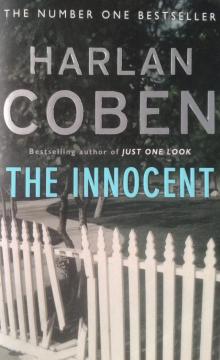 The Innocent
The Innocent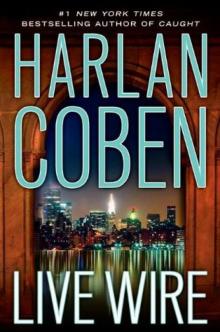 Live Wire
Live Wire Play Dead
Play Dead Drop Shot
Drop Shot Seconds Away
Seconds Away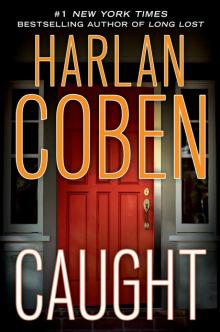 Caught
Caught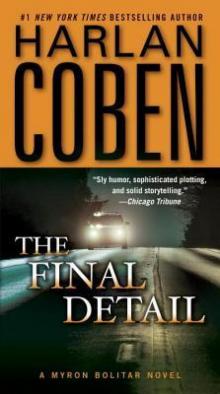 The Final Detail
The Final Detail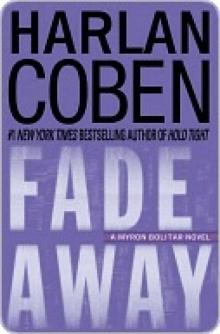 Fade Away
Fade Away Home
Home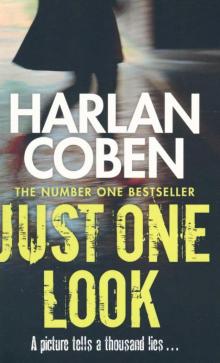 Just One Look
Just One Look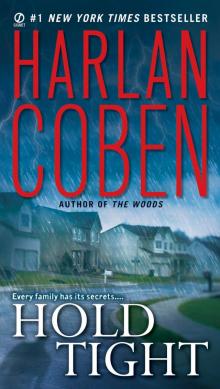 Hold Tight
Hold Tight Fool Me Once
Fool Me Once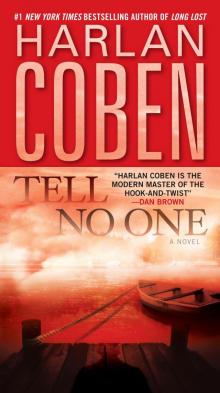 Tell No One
Tell No One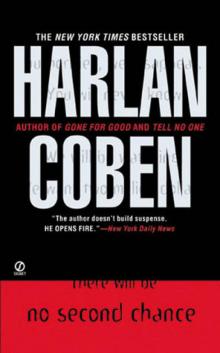 No Second Chance
No Second Chance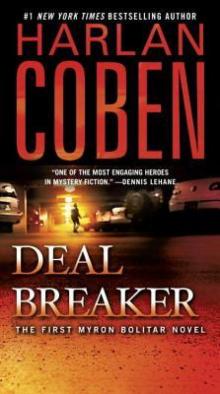 Deal Breaker
Deal Breaker Long Lost
Long Lost One False Move
One False Move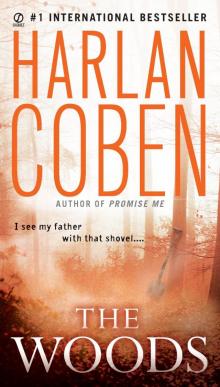 The Woods
The Woods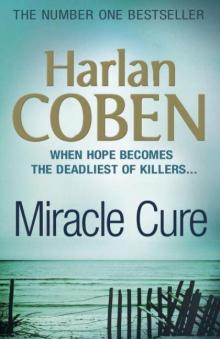 Miracle Cure
Miracle Cure Found
Found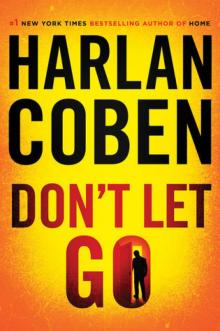 Don't Let Go
Don't Let Go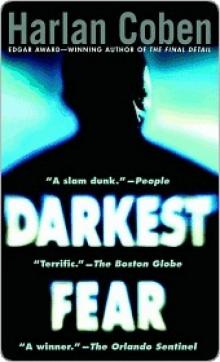 Darkest Fear
Darkest Fear The Stranger
The Stranger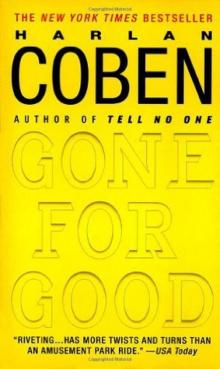 Gone for Good
Gone for Good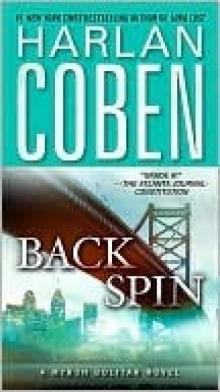 Back Spin
Back Spin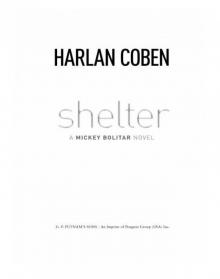 Shelter
Shelter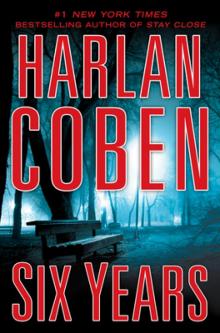 Six Years
Six Years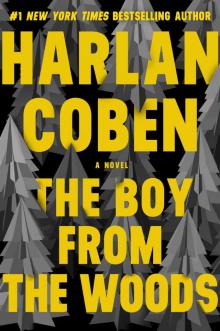 The Boy from the Woods
The Boy from the Woods Missing You
Missing You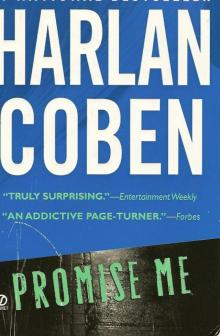 Promise Me mb-8
Promise Me mb-8 The Final Detail: A Myron Bolitar Novel
The Final Detail: A Myron Bolitar Novel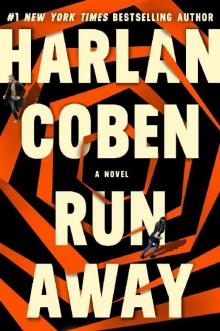 Run Away
Run Away One False Move: A Myron Bolitar Novel
One False Move: A Myron Bolitar Novel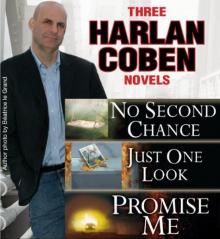 Three Harlan Coben Novels
Three Harlan Coben Novels the Woods (2007)
the Woods (2007) Tell No One (2001)
Tell No One (2001) the Innocent (2005)
the Innocent (2005)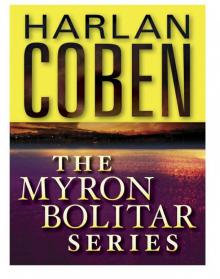 The Myron Bolitar Series 7-Book Bundle
The Myron Bolitar Series 7-Book Bundle Gone for Good (2002)
Gone for Good (2002) Caught (2010)
Caught (2010) Hold Tight (2008)
Hold Tight (2008)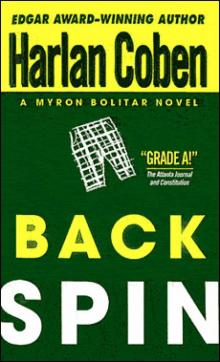 04 - Back Spin
04 - Back Spin Miracle Cure (1991)
Miracle Cure (1991) Harlan Coben 3 Novel Collection
Harlan Coben 3 Novel Collection Just One Look (2004)
Just One Look (2004)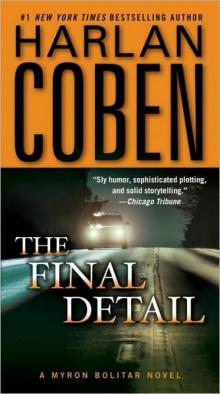 The Final Detail mb-6
The Final Detail mb-6 Play Dead (2010)
Play Dead (2010)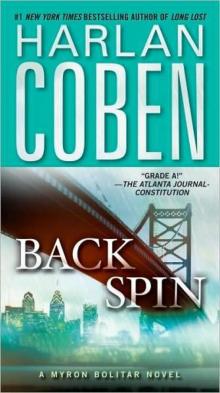 Back Spin mb-4
Back Spin mb-4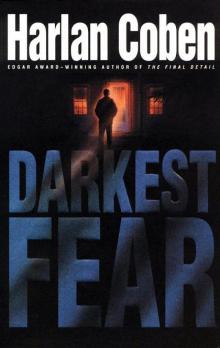 Darkest Fear mb-7
Darkest Fear mb-7